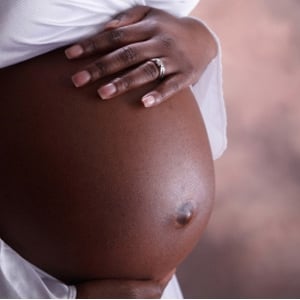
The 2005 Saving Mothers study reveals shocking findings about maternal deaths.
Mari Hudson writes in What's New Doc
The study
A study on anaesthesia-related maternal deaths in the Free State was conducted in 2005 and the findings were published in the March/April 2008 edition of the South African Journal of Anaesthesia and Analgesia, the official journal of the SA Society of Anaesthesiology.
The researchers
Dr Gillian Lamacraft and Dr PJ Kenny of the department of anaesthesiology at the UFS.
The findings
The high mortality rate related to obstetric anaesthesia is a direct consequence of inadequate training, experience and supervision of interns, community service doctors and medical officers.
Why the study was conducted
All three Saving Mothers reports (published in 1998, 2001 and 2004 respectively) stated that the Free State and Limpopo were the provinces with the highest mortality rate associated with obstetric anaesthesia. A shocking 5,4% of all maternal deaths were anaesthesia-related.
Previous studies had shown that the methods of administering anaesthesia and the availability of appropriate drugs and equipment are not to blame, so it was decided to establish whether human skill was the problem in the Free State.
Highlights from the study
- One in five doctors in rural hospitals had not administered a general anaesthetic during obstetric procedures before their current position, and almost as many had not administered a spinal anaesthetic. Yet all of them administer anaesthesia at level 1 and 2 hospitals, mostly unsupervised.
- Six doctors (GPs or medical officers) had been appointed to posts in which obstetric anaesthesia was required without previously having administered general anaesthesia for Caesarian sections. Despite this they were regularly administering obstetric anaesthesia.
- 32% of doctors now administering obstetric anaesthesia in level 1 and 2 hospitals in the Free State had gained no anaesthesia experience at all as interns, neither supervised nor unsupervised. Some of these doctors have been trained elsewhere in Africa.
- In most cases where doctors had in fact gained experience in anaesthesia as interns, the training was inadequate and the supervised experience too short.
- One in five doctors who had been supervised during their anaesthesia training as interns were supervised by junior medical officers.
- Only one doctor in the study, a medical officer, had earned a diploma in anaesthesia. None of the other medical officers with more than five years’ experience or any of the 16 GPs had a diploma in anaesthesia.
- 97% of doctors had to resuscitate a newborn baby while administering anaesthesia for a Caesarean section.
This is an edited extract of an article first published in What’s New Doc, 2nd issue, March 2009. What’s New Doc is a publication for medical doctors, produced in association with Health24.
Read more:
Anaesthesia shock: fatal decisions
Spinal anaesthesia risks
South Africa fails mothers
Anaesthesia related deaths in kids




 Publications
Publications
 Partners
Partners















